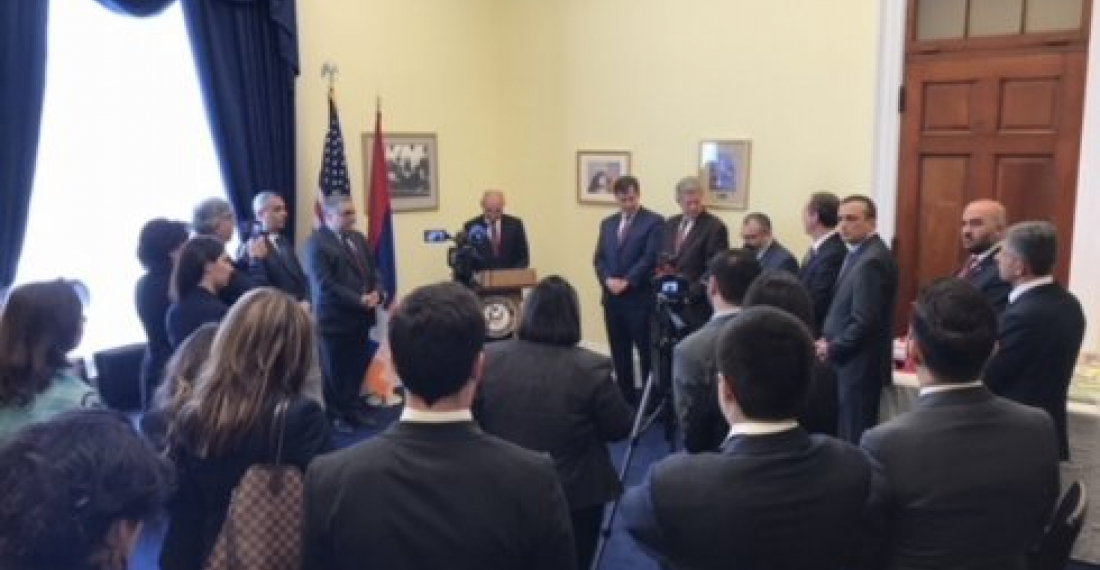The president of the self-declared Nagorno-Karabakh Republic (NKR), Bako Sahakyan, has concluded his visit to Washington DC during which he met with several members of the US Congress. During the visit however there were no meetings or contacts with either the White House or the State Department.
Co-inciding with the visit thirty-seven members of the U.S. House of Representatives signed a statement calling on Congress to back a $70 million Fiscal Year 2019 aid package for Armenia and Nagorno-Karabakh.
The Nagorno-Karabakh Republic is not recognised by any state and the Government of Azerbaijan has condemned the visit.
Read more: NKR president visits Washington
Writing on the blog of the journal The National Interest, in response to an earlier op-ed by former US Ambassador to Armenia, John Evans, Farhad Mammadov, Director of the Azerbaijani Government think-tank, Stratigic Studies Centre (SAM) challenges the call of Retired Ambassador Evans for more US engagement with Nagorno-Karabakh, In his op-ed Farhad Mammadov states:
"The United States has hitherto supported the sovereignty and territorial integrity of Azerbaijan within its internationally recognized borders. Azerbaijan, as a secular Muslim country, has been always a trustworthy partner for the United States in fighting international terrorism and supporting the U.S. mission in Afghanistan. Azerbaijan has also emerged as a reliable platform for international negotiations, including for dialogue between Russian and American military chiefs. Moreover, Azerbaijan's contribution to the energy security of the United States' European allies is an undisputed reality.
Azerbaijan considers it an unfortunate double standard that separatist leaders from occupied breakaway territories of Georgia, Ukraine and Moldova are banned from entering the United States and Europe, while so-called officials from Azerbaijan's occupied territories can freely travel to both Europe and the United States. Therefore, receiving Bako Sahakyan in Washington undermines the United States' approach (as the OSCE Minsk Group's co-chair) to the peaceful resolution of the Nagorno-Karabakh conflict, and serves as a detriment to friendly relations between the United States and Azerbaijan."
Source: commonspace.eu with agencies
photo: The president of the self-declared Nagorno-Karabakh Republic, Bako Sahakyan at a meeting with US Congressmen in Washinton on 15 March 2018.







